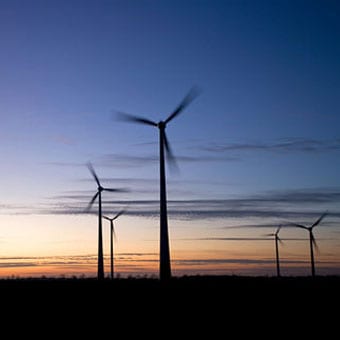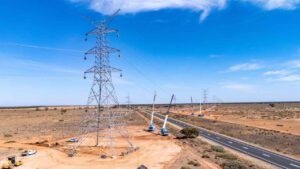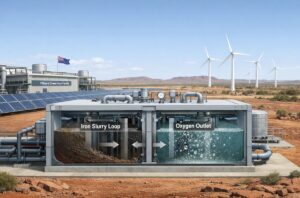A wind farm installed in Victoria by New Zealand renewables giant Meridian Energy is now fully operational and connected to the grid, after all 64 turbines went live this week.
The Mt Mercer wind farm, in Western Victoria, had been producing electricity since November last year, but is now operating at its full capacity of 131MW, bringing Meridian’s total operating portfolio in Australia to 201 MW.
Mt Mercer, near Ballarat, is the third wind farm project Meridian has developed in Australia and complements its existing Mt Millar wind farm in South Australia.

As we have noted before, these two states have proven to be huge success stories for Australian wind energy: South Australia’s wind farms produced enough electricity to meet a record 43 per cent of its power needs during July; Victoria’s wind energy provided an average of about 7 per cent of electricity demand in that same month.
Neal Barclay, Meridian Energy’s acting CEO, took the opportunity of Mt Mercer’s completion to stress the importance of Australia’s Renewable Energy Target – which is currently under threat of dilution or abolition – describing it as “a demonstration of how the… (Target) supports investment, jobs, and lower electricity prices for consumers.”
Barclay also noted in a company statement on Wednesday that the development of the wind farm had coincided with the entry of another New Zealand-owned upstart in the Australian retail electricity market: PowerShop.
As reported by RenewEconomy here, PowerShop made its official launch in Australia in February, offering consumers the choice of sourcing their electricity from wind, solar, biomass, or community energy projects.
As we noted back then, the significance of PowerShop’s arrival in Australia lies in the change it heralded in the electricity market.
“The consumption of electricity has traditionally been dominated by the interests of those who supply the fuel, and those who transport it and retail it.
“Now, the emergence of new technologies, such as rooftop solar PV, is changing the game because it allows customers to supply some of their own energy. The addition of storage will accelerate that change, and the adoption of smart technologies – from simply monitoring devices to those that can control consumption – is inviting a swag of customer focused businesses such as home security firms, internet suppliers, appliance manufacturers and retailers, and home building into the domestic market.”







